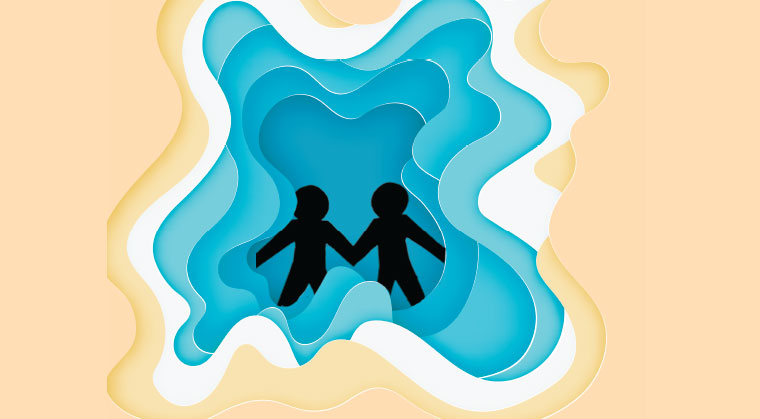Friendship: No Agendas Here!


Respect is the cornerstone of any friendship. Respect means recognizing that a friend is a worthy person and not just a way for you to get something you want. When you respect a friend, you recognize that it’s okay for her to have different ideas and opinions than you do.
If one friend tries to force the other in a specific direction, the friend who is being coerced gradually loses her ability to make independent decisions. She feels like a puppet. After repeatedly having her own values, ideas, opinions, and preferences undermined, she may begin to feel lonely and lost in the relationship. She may even begin to have a hard time recognizing herself. Even if the choices she’s coerced into making are good ones, the satisfaction will not be there because she didn’t make the choice. Did you know that if a legal contract is written up and it is found that the signer was coerced, the whole contract is rescinded and canceled? That’s because a person who is forced to make a choice is not making a choice at all.
Shani worked for a kiruv organization and went along on many weekends and trips. She enjoyed the girls and was always amazed at their aspirations and curiosity about mitzvos.
The organizers of the events always emphasized that the staff avoid all pressure or emotional manipulation. Participating teens could be encouraged to learn and explore, but never be pushed or made to feel ashamed or threatened if they didn’t take on mitzvah observance. Under all circumstances, they were not to be coerced.
How can we avoid coercion and encourage respect?
1. Widen the Circle
According to the Torah’s view of friendship, the psychological and emotional health of each friend must always be safeguarded, just like their physical wellbeing. A girl should want her friend to have as many close connections as possible. Some of the identifying signs of coercion are attempts to restrict, rather than to widen, the circle of people with whom a friend could associate.
Tali was new to the community and really wanted to make friends. When she met Rochie, she was thrilled to finally have a friend. Tali held on tight to Rochie. She invited Rochie out to eat in a fancy restaurant and gave her free tickets to a Shwekey concert. There was a catch, though: Tali wanted Rochie to be “hers.” Tali started pushing Rochie to limit the time she spent with others and to stop calling her other friends. Soon, Rochie began to feel deeply uncomfortable.
2. Serve and Return
Another beautiful way to honor a friend in a noncoercive fashion is to truly meet them “where they are.” How does that work? Try Serve and Return Interactions for a fun start. Serve and Return works like a game of tennis or volleyball between a friend who reaches out and a friend who responds. The first friend “serves” by extending themselves for interaction with eye contact, facial expressions, an opening remark, or a soft touch. The second friend “returns the serve” by mirroring: sending the same kind of interaction right back. If the first friend served by smiling, the second friend returns a smile. These back-and-forth exchanges are the building blocks of early relationship development. (If, sadly, the serve is either ignored or rejected, or lobbed back with too much force, the volley fizzles out and the first friend feels let down.) One can easily see why these interactions are the stepping-stones to a respectful relationship.
3. Patience, Patience, Patience
A third way to show respect and avoid discord is to understand the workings of the neshamah. If one wants to observe little forest creatures, it is not advisable to loudly crash through the woods with heavy equipment. Rather, walk quietly, sit patiently under a tree, and fade into your surroundings. Then the cautious creature that we are seeking might emerge to be quietly enjoyed. Similarly, a person’s inner core, the neshamah, is a lot like a shy forest creature. It does not respond well to invasion and coercion. That makes it shy away and close up. Instead, it appreciates patience, space, and respect.
Chaviva took her younger sister Suri shopping to buy her a whole new wardrobe, one that Chaviva was sure she needed. She drove to various stores, picked outfits for her to try, and dissuaded Suri from one outfit she loved, which Chaviva said was “too summery.” In the stores, Chaviva spoke in loud tones and kept using phrases like, “let me show you what’s in style” or “I will pick stuff out for you.” Instead of looking thrilled by the attention and pampering, Suri looked overwhelmed and tense.
4. Trust
Showing that you trust your friend is essential in any relationship. You can show that you trust her by not texting or calling repeatedly, even if you urgently want to talk to her! Instead, text or call once, leave a message saying that you’re thinking of her, and that you hope to hear back soon. Of course, never touch someone else’s personal belongings or enter their private space without permission; that is a breach of privacy.
5. Respect Yourself
Respect yourself and your own personal preferences. So often we try to blend in and we feel pressured into doing, hearing, or wearing things that are not truly authentic to us. Don’t try to be “normal,” just be you! Your idiosyncratic, real, quirky self.
Yocheved was an amazing artist whose work looked truly professional. She loved taking a break in the middle of a homework session to work on a new painting. She would turn on music and just let her hands work their magic. When Tehilla came over to study, Yocheved felt hesitant to paint in front of her. It wasn’t typical to have an art studio in the house, and Yocheved was worried that she would be judged by her friend.
“Serve and return” means meeting friends where they are without imposing your agenda. Don’t forget about the need for good boundaries and self-respect. Wishing happy and respectful friendships for all!
(Originally featured in Teen Pages, Issue 748)
Oops! We could not locate your form.



